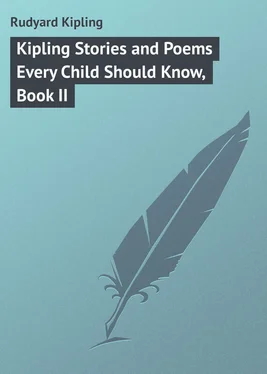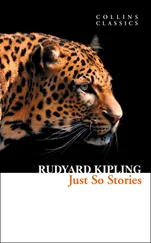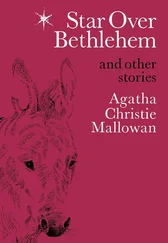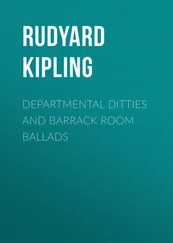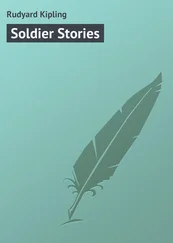Rudyard Kipling - Kipling Stories and Poems Every Child Should Know, Book II
Здесь есть возможность читать онлайн «Rudyard Kipling - Kipling Stories and Poems Every Child Should Know, Book II» — ознакомительный отрывок электронной книги совершенно бесплатно, а после прочтения отрывка купить полную версию. В некоторых случаях можно слушать аудио, скачать через торрент в формате fb2 и присутствует краткое содержание. Жанр: foreign_language, foreign_prose, на английском языке. Описание произведения, (предисловие) а так же отзывы посетителей доступны на портале библиотеки ЛибКат.
- Название:Kipling Stories and Poems Every Child Should Know, Book II
- Автор:
- Жанр:
- Год:неизвестен
- ISBN:нет данных
- Рейтинг книги:3 / 5. Голосов: 1
-
Избранное:Добавить в избранное
- Отзывы:
-
Ваша оценка:
- 60
- 1
- 2
- 3
- 4
- 5
Kipling Stories and Poems Every Child Should Know, Book II: краткое содержание, описание и аннотация
Предлагаем к чтению аннотацию, описание, краткое содержание или предисловие (зависит от того, что написал сам автор книги «Kipling Stories and Poems Every Child Should Know, Book II»). Если вы не нашли необходимую информацию о книге — напишите в комментариях, мы постараемся отыскать её.
Kipling Stories and Poems Every Child Should Know, Book II — читать онлайн ознакомительный отрывок
Ниже представлен текст книги, разбитый по страницам. Система сохранения места последней прочитанной страницы, позволяет с удобством читать онлайн бесплатно книгу «Kipling Stories and Poems Every Child Should Know, Book II», без необходимости каждый раз заново искать на чём Вы остановились. Поставьте закладку, и сможете в любой момент перейти на страницу, на которой закончили чтение.
Интервал:
Закладка:
But the reading was, just then, a much more serious matter than any creed. Aunty Rosa sat him upon a table and told him that A B meant ab.
"Why?" said Punch. "A is a and B is bee. Why does A B mean ab?"
"Because I tell you it does," said Aunty Rosa "and you've got to say it."
Punch said it accordingly, and for a month, hugely against his will, stumbled through the brown book, not in the least comprehending what it meant. But Uncle Harry, who walked much and generally alone, was wont to come into the nursery and suggest to Aunty Rosa that Punch should walk with him. He seldom spoke, but he showed Punch all Rocklington, from the mud-banks and the sand of the back-bay to the great harbours where ships lay at anchor, and the dockyards where the hammers were never still, and the marine-store shops, and the shiny brass counters in the Offices where Uncle Harry went once every three months with a slip of blue paper and received sovereigns in exchange; for he held a wound-pension. Punch heard, too, from his lips the story of the battle of Navarino, where the sailors of the Fleet, for three days afterward, were deaf as posts and could only sign to each other. "That was because of the noise of the guns," said Uncle Harry, "and I have got the wadding of a bullet somewhere inside me now."
Punch regarded him with curiosity. He had not the least idea what wadding was, and his notion of a bullet was a dockyard cannon-ball bigger than his own head. How could Uncle Harry keep a cannon-ball inside him? He was ashamed to ask, for fear Uncle Harry might be angry.
Punch had never known what anger – real anger – meant until one terrible day when Harry had taken his paint-box to paint a boat with, and Punch had protested with a loud and lamentable voice. Then Uncle Harry had appeared on the scene and, muttering something about "strangers' children," had with a stick smitten the black-haired boy across the shoulders till he wept and yelled, and Aunty Rosa came in and abused Uncle Harry for cruelty to his own flesh and blood, and Punch shuddered to the tips of his shoes. "It was n't my fault," he explained to the boy, but both Harry and Aunty Rosa said that it was, and that Punch had told tales, and for a week there were no more walks with Uncle Harry.
But that week brought a great joy to Punch.
He had repeated till he was thrice weary the statement that "the Cat lay on the Mat and the Rat came in."
"Now I can truly read," said Punch, "and now I will never read anything in the world."
He put the brown book in the cupboard where his schoolbooks lived and accidentally tumbled out a venerable volume, without covers, labelled Sharpe's Magazine . There was the most portentous picture of a Griffin on the first page, with verses below. The Griffin carried off one sheep a day from a German village, till a man came with a "falchion" and split the Griffin open. Goodness only knew what a falchion was, but there was the Griffin, and his history was an improvement upon the eternal Cat.
"This," said Punch, "means things, and now I will know all about everything in all the world." He read till the light failed, not understanding a tithe of the meaning, but tantalized by glimpses of new worlds hereafter to be revealed.
"What is a 'falchion'? What is a 'e-wee lamb'? What is a 'base ussurper'? What is a 'verdant me-ad'? he demanded, with flushed cheeks, at bedtime, of the astonished Aunt Rosa.
"Say your prayers and go to sleep," she replied, and that was all the help Punch then or afterward found at her hands in the new and delightful exercise of reading.
"Aunt Rosa only knows about God and things like that," argued Punch. "Uncle Harry will tell me."
The next walk proved that Uncle Harry could not help either; but he allowed Punch to talk, and even sat down on a bench to hear about the Griffin. Other walks brought other stories as Punch ranged farther afield, for the house held large store of old books that no one ever opened – from Frank Fairlegh in serial numbers, and the earlier poems of Tennyson, contributed anonymously to Sharpe's Magazine , to '62 Exhibition Catalogues, gay with colours and delightfully incomprehensible, and odd leaves of "Gulliver's Travels."
As soon as Punch could string a few pot-hooks together, he wrote to Bombay, demanding by return of post "all the books in all the world." Papa could not comply with this modest indent, but sent "Grimm's Fairy Tales" and a "Hans Andersen." That was enough. If he were only left alone Punch could pass, at any hour he chose, into a land of his own, beyond reach of Aunty Rosa and her God, Harry and his teasements, and Judy's claims to be played with.
"Don't disturb me, I'm reading. Go and play in the kitchen," grunted Punch. "Aunty Rosa lets you go there." Judy was cutting her second teeth and was fretful. She appealed to Aunty Rosa, who descended on Punch.
"I was reading," he explained, "reading a book. I want to read."
"You're only doing that to show off," said Aunty Rosa. "But we'll see. Play with Judy now, and don't open a book for a week."
Judy did not pass a very enjoyable playtime with Punch, who was consumed with indignation. There was a pettiness at the bottom of the prohibition which puzzled him.
"It's what I like to do," he said, "and she's found out that and stopped me. Don't cry, Ju – it was n't your fault – please don't cry, or she'll say I made you."
Ju loyally mopped up her tears, and the two played in their nursery, a room in the basement and half underground, to which they were regularly sent after the midday dinner while Aunty Rosa slept. She drank wine – that is to say, something from a bottle in the cellaret – for her stomach's sake, but if she did not fall asleep she would sometimes come into the nursery to see that the children were really playing. Now bricks, wooden hoops, ninepins, and chinaware cannot amuse forever, especially when all Fairyland is to be won by the mere opening of a book, and, as often as not, Punch would be discovered reading to Judy or tell her interminable tales. That was an offence in the eyes of the law, and Judy would be whisked off by Aunty Rosa, while Punch was left to play alone, "and be sure that I hear you doing it."
It was not a cheering employ, for he had to make a playful noise. At last, with infinite craft, he devised an arrangement whereby the table could be supported as to three legs on toy bricks, leaving the fourth clear to bring down on the floor. He could work the table with one hand and hold a book with the other. This he did till an evil day when Aunty Rosa pounced upon him unawares and told him that he was "acting a lie."
"If you're old enough to do that," she said – her temper was always worst after dinner – "you're old enough to be beaten."
"But – I'm – I'm not a animal!" said Punch, aghast. He remembered Uncle Harry and the stick, and turned white. Aunty Rosa had hidden a light cane behind her, and Punch was beaten then and there over the shoulders. It was a revelation to him. The room door was shut, and he was left to weep himself into repentance and work out his own Gospel of Life.
Aunty Rosa, he argued, had the power to beat him with many stripes. It was unjust and cruel and Mamma and Papa would never have allowed it. Unless perhaps, as Aunty Rosa seemed to imply, they had sent secret orders. In which case he was abandoned indeed. It would be discreet in the future to propitiate Aunty Rosa, but, then, again, even in matters in which he was innocent, he had been accused of wishing to "show off." He had "shown off" before visitors when he had attacked a strange gentleman – Harry's uncle, not his own – with requests for information about the Griffin and the falchion, and the precise nature of the Tilbury in which Frank Fairlegh rode – all points of paramount interest which he was bursting to understand. Clearly it would not do to pretend to care for Aunty Rosa.
Читать дальшеИнтервал:
Закладка:
Похожие книги на «Kipling Stories and Poems Every Child Should Know, Book II»
Представляем Вашему вниманию похожие книги на «Kipling Stories and Poems Every Child Should Know, Book II» списком для выбора. Мы отобрали схожую по названию и смыслу литературу в надежде предоставить читателям больше вариантов отыскать новые, интересные, ещё непрочитанные произведения.
Обсуждение, отзывы о книге «Kipling Stories and Poems Every Child Should Know, Book II» и просто собственные мнения читателей. Оставьте ваши комментарии, напишите, что Вы думаете о произведении, его смысле или главных героях. Укажите что конкретно понравилось, а что нет, и почему Вы так считаете.
